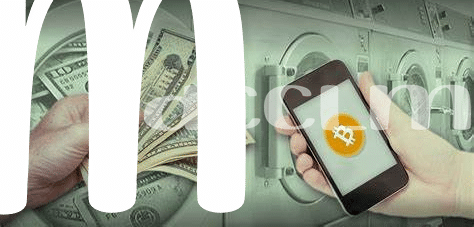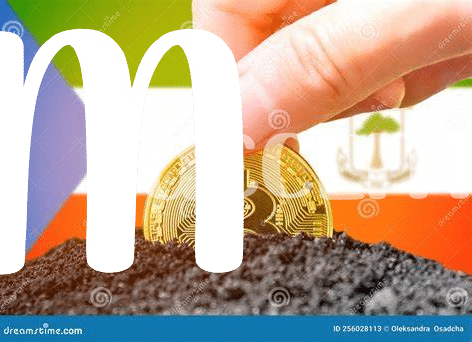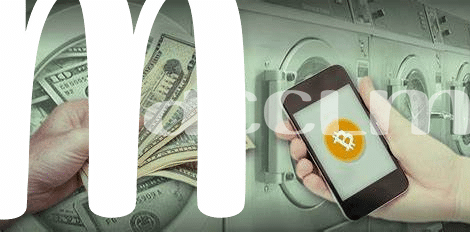Overview of Bitcoin and Money Laundering 💰

Bitcoin, a digital currency that operates independently of a central authority, has revolutionized the financial landscape. Its decentralized nature and pseudonymous transactions have attracted both legitimate users and those seeking to exploit its anonymity for illicit purposes. Recognizing the potential for abuse, regulators worldwide are grappling with the challenge of regulating Bitcoin and other cryptocurrencies to prevent money laundering and other financial crimes. Understanding the intersection of Bitcoin and money laundering is crucial in developing effective safeguards against illicit activities in the ever-evolving digital economy.
Risks Posed by Bitcoin Transactions 🚨
Bitcoin transactions have revolutionized the financial landscape, offering convenience and efficiency. However, these transactions also bring inherent risks that cannot be overlooked. The decentralized and pseudonymous nature of Bitcoin makes it an attractive tool for money launderers seeking to conceal the origins of illicit funds. Furthermore, the speed and cross-border nature of Bitcoin transactions make tracking and regulating them a significant challenge for authorities.
Ensuring compliance with anti-money laundering regulations is crucial in mitigating the risks associated with Bitcoin transactions. Implementing robust Know Your Customer (KYC) procedures and transaction monitoring mechanisms can enhance transparency and accountability in the digital currency space. Collaboration between regulators, law enforcement agencies, and financial institutions is essential to effectively combat money laundering activities facilitated through Bitcoin transactions.
Legal Framework for Combating Money Laundering 📜

In Guinea, the legal framework for combating money laundering is an essential tool in safeguarding the financial system. The laws and regulations are designed to identify, prevent, and prosecute individuals involved in illicit financial activities. Authorities work diligently to enforce these measures and ensure compliance within the country’s borders. However, challenges such as limited resources and capacity constraints can hinder the effectiveness of these laws. Despite these obstacles, ongoing efforts are being made to enhance the legal framework and strengthen Guinea’s ability to combat money laundering effectively.
International cooperation is crucial in the fight against financial crimes. Guinea actively engages with global partners and organizations to exchange information, enhance knowledge, and coordinate efforts in combating money laundering. By collaborating on an international level, countries can better address the evolving threats posed by illicit financial activities and work together to protect the integrity of the global financial system.
Challenges in Enforcing Guinea’s Laws 🇬🇳

Enforcing laws in Guinea presents certain challenges, particularly in the context of combating money laundering. Limited resources, lack of specialized training, and gaps in regulatory frameworks contribute to the difficulty in effectively enforcing anti-money laundering measures. Additionally, the informal economy prevalent in Guinea poses obstacles to monitoring and regulating financial transactions, making it challenging to detect and prevent illicit activities. Addressing these challenges requires a comprehensive approach that involves enhancing institutional capacity, fostering collaboration between enforcement agencies, and promoting public awareness about the importance of financial transparency and accountability.
To delve deeper into the legal landscape surrounding Bitcoin transactions and money laundering risks, consider exploring the Canadian crypto scene to understand the regulations pertaining to Bitcoin ATMs. Are Bitcoin ATMs legal in Chile? Find out more about the regulatory framework and implications by visiting are Bitcoin ATMs legal in Chile?. It is essential to stay informed about the evolving regulatory environment to mitigate risks and promote financial integrity.
International Cooperation in Fighting Financial Crimes 🌍
International cooperation is essential in combating financial crimes, as illicit activities often transcend borders. By sharing information and resources, countries can work together to track and disrupt money laundering networks that exploit the global financial system. This collaboration strengthens the ability to investigate and prosecute those involved in illegal transactions, leading to more effective outcomes in the fight against financial crimes. Through mutual support and coordination, the international community can create a united front to address the challenges posed by money laundering and uphold the integrity of the financial system worldwide.
Recommendations for Safeguarding Against Illicit Activities 🔒

In order to safeguard against illicit activities, it is crucial to implement robust Know Your Customer (KYC) measures and Anti-Money Laundering (AML) protocols within the cryptocurrency ecosystem. Regularly updating compliance procedures, conducting thorough due diligence on clients, and establishing clear reporting mechanisms are essential steps for preventing the misuse of Bitcoin transactions for money laundering. Additionally, promoting public awareness about the risks associated with cryptocurrencies and enhancing regulatory oversight can significantly contribute to deterring illicit activities in the financial sector. 🛡️
Please insert the below link with the anchor text “are bitcoin atms legal in Canada?” in the text as requested:
are bitcoin atms legal in Burkina Faso?
